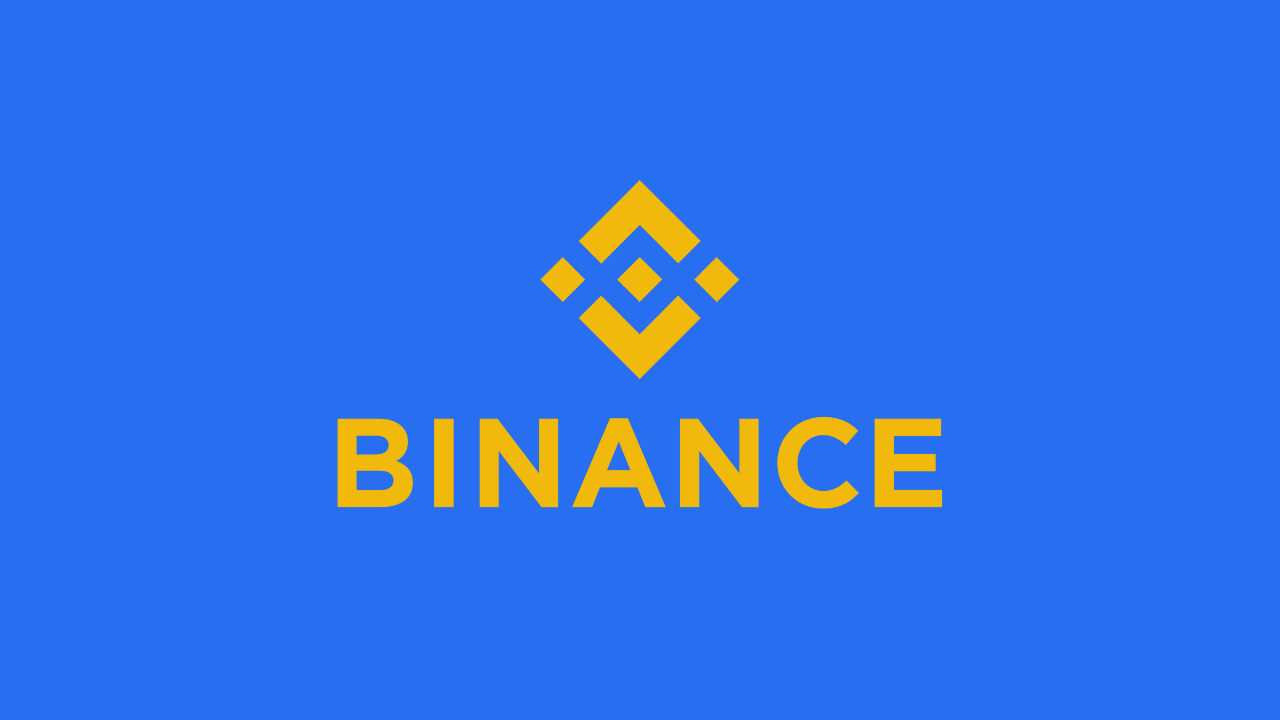Language:
Coinbase vs Binance: A Comparison Guide
Cryptocurrency has taken the world by storm, with its decentralized nature and potential for high returns. As a result, the demand for cryptocurrency exchanges has skyrocketed, attracting investors worldwide to buy, sell, and trade crypto assets.
However, with so many popular crypto exchanges available, it can be tough to navigate through the clutter and find the right one.
Two prominent names in the world of cryptocurrency exchanges are Coinbase and Binance. Both have gained immense popularity over the years due to their user-friendly interfaces and wide range of offerings.
In this blog, we will delve into both Coinbase and Binance and compare their features, fees, security measures, and more.
Both Coinbase and Binance offer similar services but cater to different types of users. While Coinbase is more suitable for beginners, Binance caters to a broader audience, including beginners and advanced traders.
As such, comparing these two exchanges in terms of their features and offerings is essential so you can make an informed decision based on your trading goals and needs.
What is Coinbase?
Coinbase is one of the world’s most well-known and trusted cryptocurrency exchanges. At its core, Coinbase is an online trading platform that allows users to buy, sell, send, receive, and store cryptocurrencies.
It acts as a bridge between traditional fiat currency (like USD) and digital currencies. This means that users can easily convert their fiat currency into crypto or vice versa through Coinbase.
One of the key features that sets Coinbase apart from other exchanges is its intuitive user interface, security, and technology. The platform is simple and easy to navigate even for beginners.
It stores 98% of customers’ funds offline in cold storage wallets with multi-sig technology. This means that even if the exchange gets compromised in any way, customer funds will still be intact.
Coinbase charges a flat fee or a percentage of the transaction amount, depending on the payment method. Another factor that makes Coinbase stand out is its regulatory compliance. Coinbase has established itself as a reputable and user-friendly exchange in the cryptocurrency market.
It is one of the first exchanges to operate in the United States under regulatory guidelines from FinCEN (Financial Crimes Enforcement Network).
However, this also means users must provide a government-issued ID card and proof of residence before transacting on the platform. For those who prioritize anonymity over an extra layer of security, there can trade using no-KYC crypto exchanges.
What is Binance?
Binance is one of the market’s largest and most popular exchanges, with a daily trading volume of over $2 billion. One of the main reasons behind Binance’s success is its user-friendly interface and advanced trading features. The platform offers basic and advanced options for traders depending on their experience level.
Another crucial factor that sets Binance apart from other exchanges is its low fee structure. The platform charges a flat fee of 0.1% per trade which is significantly lower than many other exchanges in the market. Additionally, if users pay their fees with Binance’s cryptocurrency – BNB coin – they will receive a 25% discount on all trading fees.
Binance offers two-factor authentication (2FA), device management, address whitelisting, and cold wallet storage for added protection against cyber threats. Due to a high trading volume, Binance always has buyers and sellers on the platform to ensure quick trade execution with minimal slippage.
Binance also stands out due to its long list of features and services, such as margin trading and staking rewards programs. It also provides multiple trading pairs with advanced charting tools that allow traders to diversify their portfolios and exploit different market opportunities. So whether you are a beginner or a pro trader, Binance can cater to your needs and preferences.
Supported Cryptocurrencies by Coinbase
Currently, Coinbase supports a total of over 170 tradable cryptocurrencies on its platform. This includes well-known names such as:
- Bitcoin (BTC)
- Ethereum (ETH)
- Litecoin (LTC)
- Ripple (XRP)
- Bitcoin Cash (BCH)
It also offers support for lesser-known coins like Cosmos (ATOM), Kyber Network (KNC), and Tezos (XTZ).
The main reason for Coinbase’s lower number of crypto assets is its strict listing process. The exchange has a rigorous evaluation system to ensure that only reputable and compliant projects are listed on its platform.
This means that popular coins with high trading volumes are more likely to be supported by Coinbase, making it easier for users to buy and sell their assets.
Still, Coinbase has one of the most diversified cryptocurrency trading systems. While some exchanges focus solely on digital currencies or utility tokens, Coinbase offers support for various assets, including stablecoins like USD Coin (USDC) and DAI, which aim to maintain a stable value against fiat currencies.
Moreover, Coinbase also supports decentralized finance (DeFi) tokens such as Compound Finance’s COMP token and MakerDAO’s MKR token. These DeFi projects have gained significant traction in recent years due to their innovative solutions for lending, borrowing, and earning interest on crypto assets.
Supported Cryptocurrencies by Binance
Currently, Binance supports over 350 cryptocurrencies, including well-known and established coins such as:
- Bitcoin
- Ethereum
- Litecoin
- Ripple
In addition to major coins, Binance also supports numerous altcoins or alternative coins that have gained popularity in recent years. Some notable examples include:
- Cardano (ADA)
- Chainlink (LINK)
- Polkadot (DOT)
- Stellar (XLM)
What’s even more impressive is that Binance also offers support for many lesser-known or smaller market-cap coins.
This gives users access to potentially high-growth opportunities while diversifying their portfolios. It also supports stablecoins—digital currencies backed by real-world assets like fiat currency or gold—which help traders mitigate volatility risks during market fluctuations.
Another advantage of using Binance is its support for trading pairs. A trading pair refers to two different currencies that can be exchanged for each other on an exchange. Binance offers various trading pairs, including fiat-to-crypto, crypto-to-crypto, and stablecoin-to-crypto pairs.
This allows users to easily trade between cryptocurrencies or cash their digital assets into fiat currencies.
Fee Structures of Coinbase and Binance
Coinbase has a straightforward tiered fee structure based on the transaction volume. For transactions below $10, the flat fee is $0.99; between $10 and $25, the cost increases to $1.49. The flat rate rises to 1.49% for trades between $25 and $50; for transactions above $50 up to $200, it is 1.99%.
Anything greater than this amount incurs a flat rate of 2%.
In addition to trading fees, Coinbase charges a network fee or “miner’s fee” for every transaction made on their platform. This can vary depending on network congestion but usually ranges from about 0.00001 BTC to 0.00004 BTC per transaction.
On the other hand, Binance operates under a maker-taker model, where it charges different fees depending on whether you are making or taking liquidity from the market.
There is also a withdrawal fee that varies depending on the specific cryptocurrency being withdrawn. The fee structure can be complex for beginners, but it’s still comparatively lower than other platforms, especially for high-volume traders.
Both Coinbase and Binance have competitive and transparent fee structures catering to different traders. While Coinbase’s pricing may seem higher at first glance, it offers tiered pricing that can significantly reduce fees for high-volume traders. On the other hand, Binance’s maker-taker model is more attractive for those looking to minimize costs with limited orders.
How to Set up an Account: A Detailed Walkthrough
Setting up an account on both cryptocurrency exchanges is quite simple and straightforward. You can visit their website and click on the “Sign Up” button at the top right corner of the page. You will then be prompted to enter your personal information, such as name, email address, and password.
After verifying your email address through a link sent to your inbox, you can set up 2FA for added security measures. The next step is to provide identification verification documents such as a government-issued ID or driver’s license.
Once your identity has been verified, you can set up your payment method by linking a bank account or debit/credit card to start trading.
While the whole process for both exchanges may seem similar, it is essential to note that each exchange has specific requirements and procedures. So, remember to follow those guidelines carefully to ensure a smooth account setup and trading experience.
Additional Services
When it comes to cryptocurrency exchanges, there is often more than just buying and selling digital assets. Many exchanges offer additional services that can enhance your trading experience and make it easier to manage your crypto portfolio. Coinbase offers various additional services that cater to both beginner and advanced traders.
One of their most notable services is the ability to earn rewards through staking. Staking involves holding a certain amount of cryptocurrency in your wallet for a specific period, which helps secure the network and validate transactions. In return, you can earn interest on your holdings through additional coins.
For users looking to track their performance and analyze their trading strategies, Coinbase also has a built-in tax reporting tool called Coinbase Tax Center.
This feature automatically generates reports based on your trading activity, making it easier to report crypto taxes with ease.
Similar to Coinbase, Binance also offers staking services. However, one unique offering from Binance is its Launchpad platform, which allows users to participate in Initial Exchange Offerings (IEOs).
Additionally, Binance has its own native token, BNB (Binance Coin), which can be used to pay trading fees on the exchange at a discounted rate.
The Pros and Cons
Pros of Coinbase
Coinbase has a simple and intuitive interface that makes it easy for beginners to buy, sell, or trade cryptocurrencies. Apart from supporting a wide range of cryptocurrencies, the exchange boasts high liquidity which means you can easily buy or sell your cryptocurrencies without experiencing major price fluctuations.
Cons of Coinbase
Experienced traders may find Coinbase’s trading tools lacking compared to other exchanges. The fee is also on the higher side compared to other exchanges, which can eat into your profits if you’re making frequent trades.
Pros of Binance
Binance offers one of the lowest trading fees in the industry, at just 0.1% per trade. It also has the highest liquidity, making it easy to buy or sell cryptocurrencies without major price fluctuations. Users can leverage its advanced trading tools, such as margin trading and futures contracts, to diversify their portfolios for better yield.
Cons of Binance
Unlike Coinbase, Binance has limited support for fiat currencies such as USD or EUR, so you cannot directly deposit or withdraw these currencies. The global Binance platform is unavailable for U.S. customers, and the Binance.US exchange has limited features, which can be overwhelming. Additionally, the platform doesn’t have a built-in digital wallet where investors can store their crypto assets.
Secure Crypto Investments With Investment LLC Formation
Forming an investment LLC is the best way to secure and expand your crypto investments, and doola can help! The major advantage is the option of pooling resources with other members, allowing for larger and potentially more profitable investments.
This can be especially beneficial in the volatile world of cryptocurrency where large sums of money are often needed to make significant gains.
Another significant perk is the tax benefits you get as an LLC. Depending on the structure of your company and its profits or losses, you may easily navigate the complexities of crypto taxes to take advantage of certain deductions or write-offs on your tax filings.
However, it’s essential to do thorough research and seek professional guidance before making any decisions.
To discuss more details, book a free consultation with our experts today!
FAQs
Is my money safe on these exchanges?
Both Coinbase and Binance have advanced security measures to protect users’ funds. However, storing your funds in a personal wallet is always recommended rather than leaving them on the exchange.
Are there any fees associated with using these exchanges?
Coinbase and Binance charge fees for certain transactions such as buying or selling cryptocurrencies or transferring them off the exchange. However, Coinbase fees are not disclosed on the website since they’re determined by a combination of factors, including payment method, order size, market volatility, and liquidity.
Do I need to provide personal information to use these exchanges?
Yes, both Coinbase and Binance require users to complete a KYC verification process before they can start trading on their platforms. This includes providing personal information such as your full name, address, date of birth, and a government-issued ID.
Can I use fiat currency (USD/EUR) on these exchanges?
Both Coinbase (in select countries) and Binance allow users to deposit fiat currency into their accounts using bank transfers or credit/debit cards. However, it’s important to note that not all cryptocurrencies are available for direct purchase using fiat currency.








